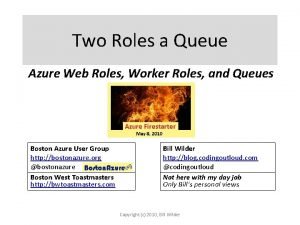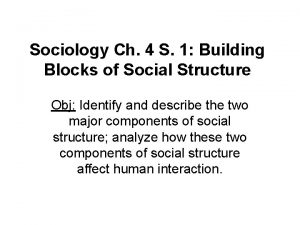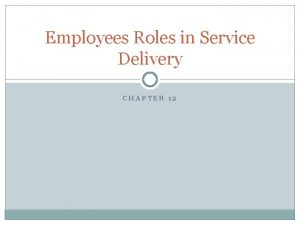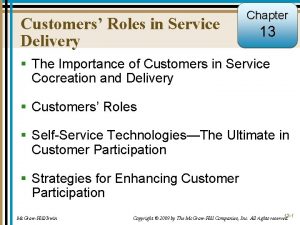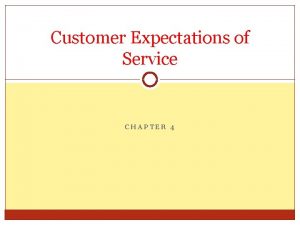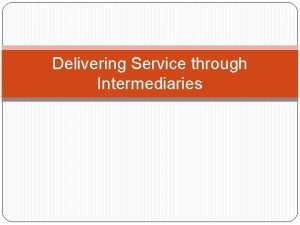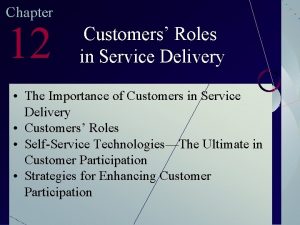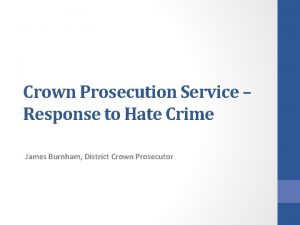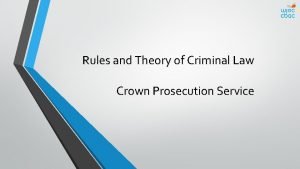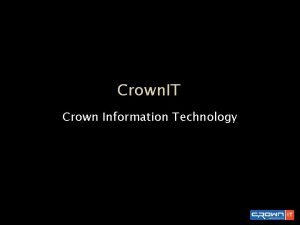The Role of Crown Prosecution Service Decide who

















- Slides: 17


The Role of Crown Prosecution Service Ø Decide who should be prosecuted and for what offence. Ø Advise the police during their investigation in more serious or complex cases. Ø Prepare cases and present them at court. Ø Provides information, assistance and support to victims and prosecution witnesses. Ø Works closely with the police, courts, the judiciary and other partners to deliver justice.

How do we decide who should be prosecuted?

The two stages 1. The evidential stage Is there enough evidence to provide a realistic prospect of conviction? That is, the court is more likely than not to convict. If the case does not pass the evidential stage there can be no prosecution.

2. The Public Interest Stage • The more serious the offence, the more likely it is that a prosecution is required. • The greater the suspect’s culpability, the more likely it is that a prosecution is require. • The more harm to the victim and the greater their vulnerability the more likely it is that a prosecution is required. • The suspect’s age and maturity at the time of the offence. • Is prosecution a proportionate response? Diversion? Example

The Full Code Test Prosecutors cannot charge unless the police investigation has been completed including all outstanding reasonable lines of inquiry have been pursued. Reasonable lines of inquiry may include: - Ø Phone downloads from victim’s phone. Ø Victim’s social services records. Ø Material that might support the suspect’s case.

The Threshold Test An immediate charging decision must be made as otherwise there is a substantial risk the suspect would: - Ø Harm or threaten the victim Ø Intimidate witnesses Ø Abscond Requires that there are reasonable grounds to believe that the suspect has committed the offence And that further evidence will be provided within a reasonable time.

Victim’s Right to Review. Right to request a review arises where the CPS: (i) Makes the decision not to charge or (ii) Drops all charges involving the victim Victims will be notified of the prosecution decision not to bring proceedings / bring proceedings to an end and told of their right to review the decision.

Child Sexual Exploitation Operation Dalesway Bradford grooming gang jailed for total of 132 years for raping and abusing under-age girls in care

Operation Tendersea Twenty men convicted of rape and other serious sexual offences against young girls in the Huddersfield area between 2004 and 2011. Jailed for total of over 200 years

Issues in prosecuting CSE cases Ø Disclosure Ø Concurrent proceedings in family courts Ø Historic offences Ø Logistics & resources Ø Supporting victims through the process

Disclosure The Disclosure Test Any material which might reasonably be considered capable of undermining the case for the prosecution or of assisting the case for the accused must be disclosed. Reasonable Lines of enquiry There is a duty under the CPIA Code of Practice for an investigator to pursue all reasonable lines of enquiry, whether these point towards or away from a suspect.

Problems with disclosure in CSE cases Third Party Material Ø Ø Social services records Family Court Obtaining consent of third party Obtaining consent of victim Phones Ø Reasonable lines of enquiry will often involve interrogation of victim’s phone. Ø Consent Ø Smart Phones = computers The average mobile phone today is capable of holding the data equivalent of about 5 million A 4 pages. The average human reader working a 40 -hour week would take 40 years to read all that content.

Responding to the challenge

County lines and Child Criminal Exploitation County lines - Typology Ø Metropolitan OCG Ø Exploit children and/or vulnerable adults to move drugs into rural towns Ø Use coercion, intimidation and violence Ø Dedicated mobile phone line - “dealer line”. Code always in PI

Victim or criminal ? Q- Should a 17 year old supplying drugs be treated as a victim or criminal? Section 45 Modern Slavery Act 2015 provides a statutory defence where: Ø D is under 18. Ø The offending was direct consequence of being exploited AND Ø A reasonable person in the same situation as the defendant and with the defendant’s relevant characteristics would have committed the offence.

A four-stage approach to the prosecution decision 1. Is there a reason to believe that the person is a victim of trafficking? If yes, move to Question 2. Is there clear evidence of a credible defence of duress? If yes, then the case should not be prosecuted If not, move to Question 3. Is there clear evidence of a statutory defence under Section 45 If yes, then the case should not be charged or should be discontinued on evidential grounds If not, move to Question 4. Is it in the public interest to prosecute?
 Epo patent prosecution highway
Epo patent prosecution highway Pre prosecution
Pre prosecution Promoting services and educating customers
Promoting services and educating customers Worker role azure
Worker role azure Symbolischer interaktionismus krappmann
Symbolischer interaktionismus krappmann Statuses and their related roles determine the structure
Statuses and their related roles determine the structure Role of employees in service delivery
Role of employees in service delivery Service delivery roles
Service delivery roles Customer roles in service delivery
Customer roles in service delivery Desired service and adequate service
Desired service and adequate service Delivering services through intermediaries
Delivering services through intermediaries 3 roles of customers
3 roles of customers Employees role in service delivery
Employees role in service delivery Customer as productive resources
Customer as productive resources Hát kết hợp bộ gõ cơ thể
Hát kết hợp bộ gõ cơ thể Bổ thể
Bổ thể Tỉ lệ cơ thể trẻ em
Tỉ lệ cơ thể trẻ em



